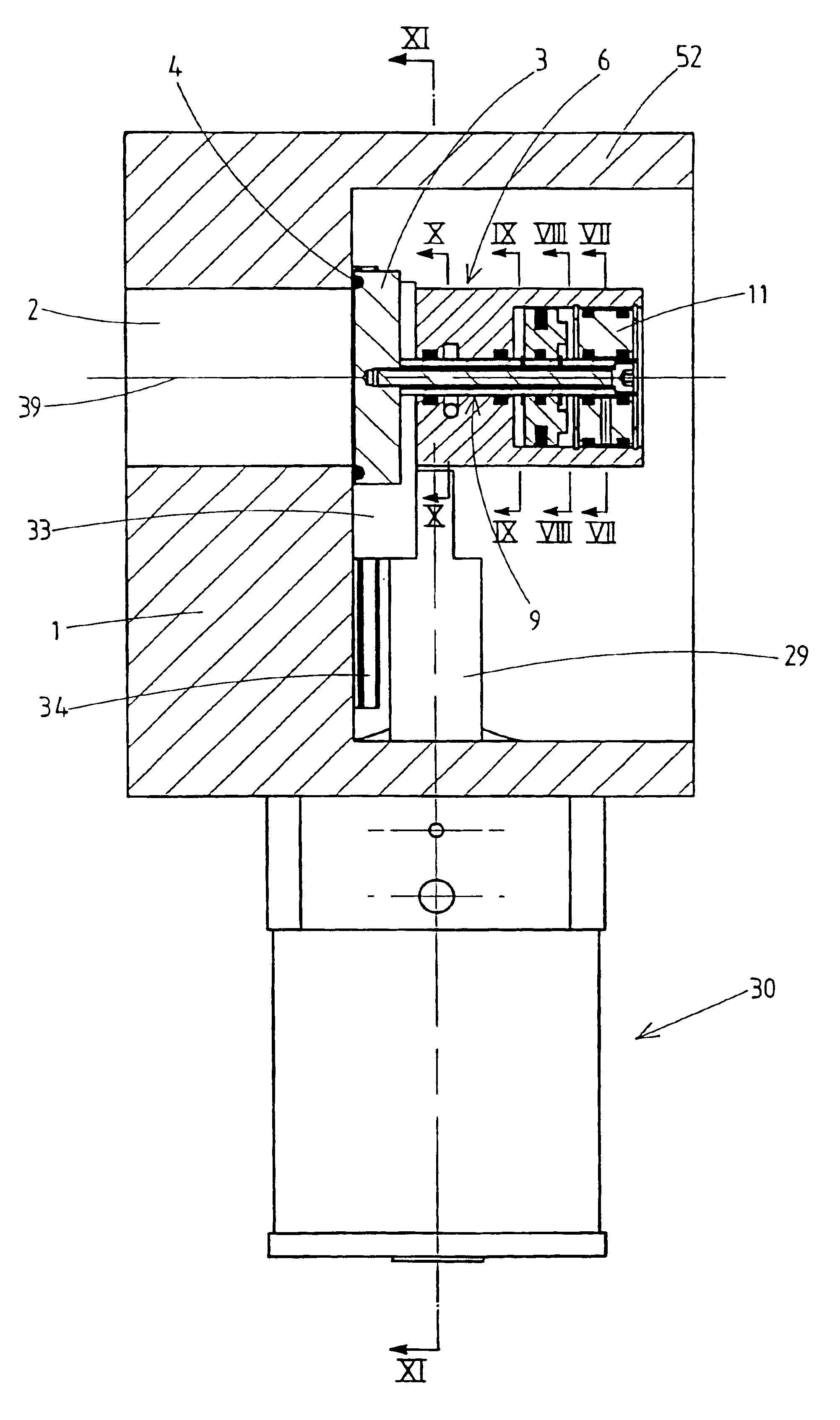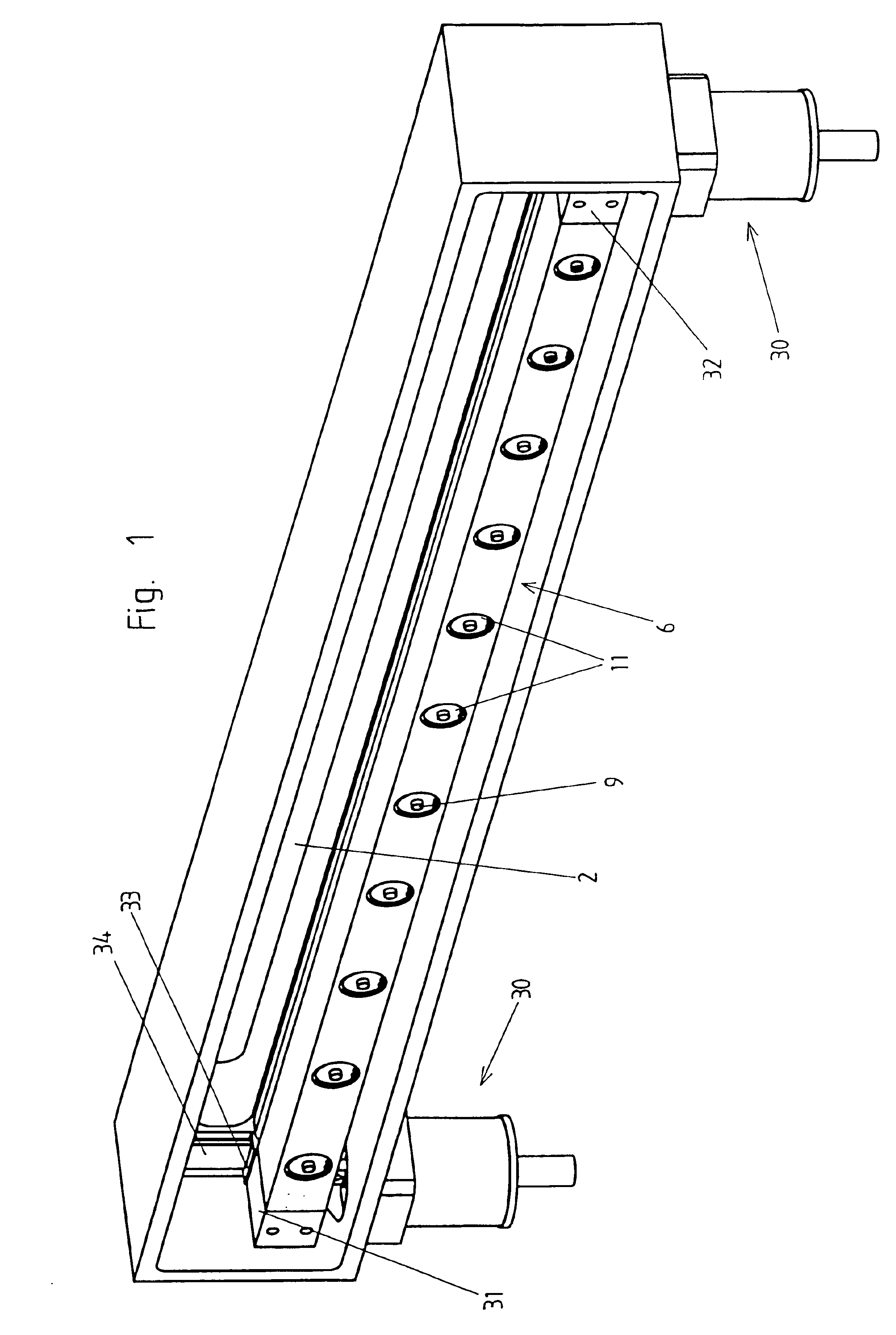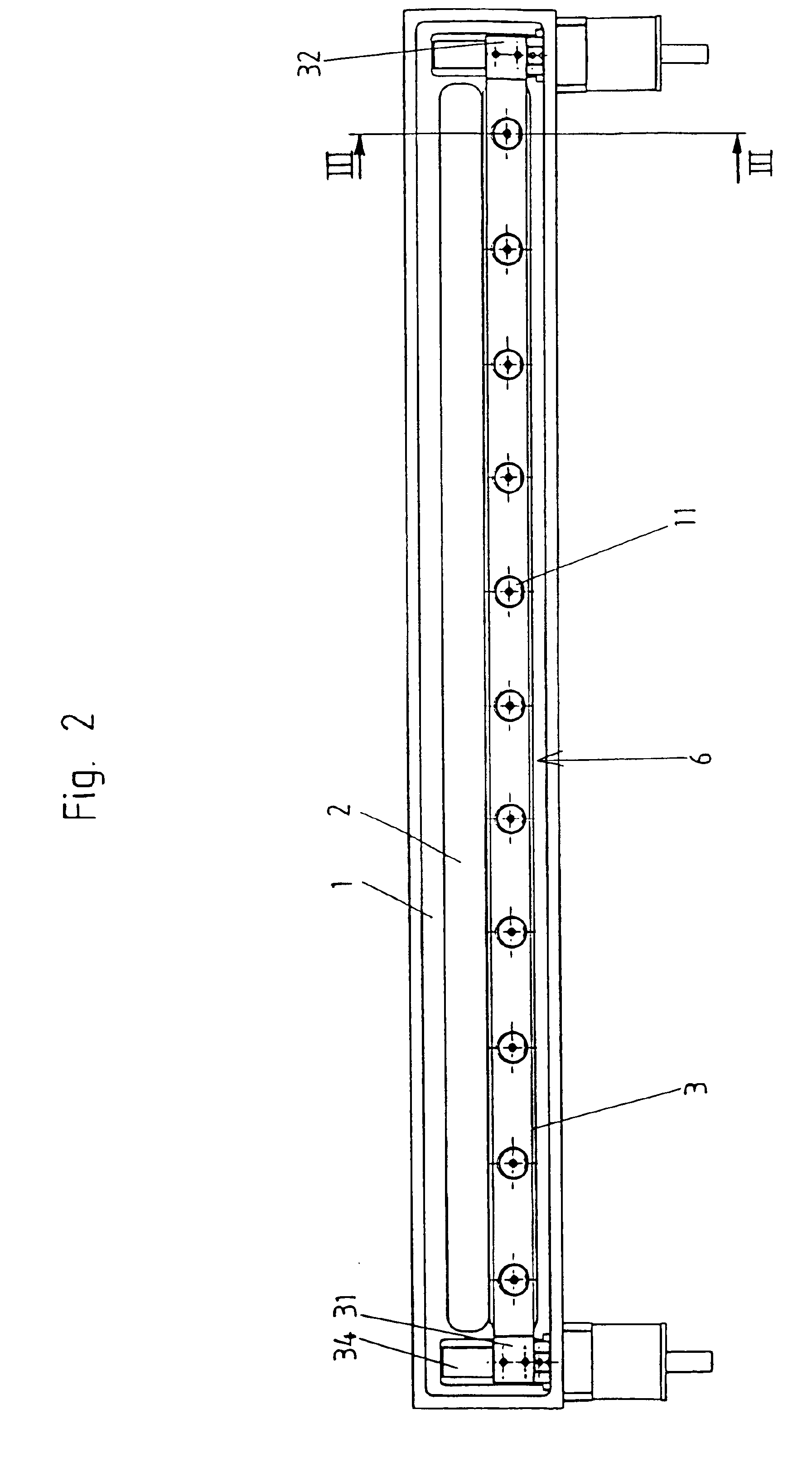Closure device for vacuum closure of at least one opening in a wall
a technology of vacuum closure and opening, which is applied in the direction of valves, mechanical devices, pillows, etc., can solve the problems of significant pressure relative to the vacuum, risk of leakage, and risk of leakage in the piston-cylinder units which are accordingly located in the vacuum area, so as to reduce the risk of leakage, and facilitate service
- Summary
- Abstract
- Description
- Claims
- Application Information
AI Technical Summary
Benefits of technology
Problems solved by technology
Method used
Image
Examples
Embodiment Construction
[0032]The embodiment example of a closure device according to the invention shown in FIGS. 1 to 11 serves for vacuum closure or vacuum sealing of an individual slot-shaped opening 2 in a wall 1. By the expression vacuum closure is meant herein that the opening 2 in the closed state of the closure device is closed in such a way that a vacuum can be maintained at least on one side of the wall (on the left-hand side of the wall with reference to FIG. 5). The closure device can also be constructed in such a way that it is stable with respect to differential pressure on both sides, i.e., a vacuum can be maintained on the left-hand side of the wall 1 with reference to FIG. 5 and there can be atmospheric pressure on the right-hand side with reference to FIG. 5 or, conversely, a vacuum can be maintained on the right-hand side of the wall with reference to FIG. 5 and there can be atmospheric pressure on the left-hand side with reference to FIG. 5. In the present context, a vacuum designates ...
PUM
 Login to View More
Login to View More Abstract
Description
Claims
Application Information
 Login to View More
Login to View More - R&D
- Intellectual Property
- Life Sciences
- Materials
- Tech Scout
- Unparalleled Data Quality
- Higher Quality Content
- 60% Fewer Hallucinations
Browse by: Latest US Patents, China's latest patents, Technical Efficacy Thesaurus, Application Domain, Technology Topic, Popular Technical Reports.
© 2025 PatSnap. All rights reserved.Legal|Privacy policy|Modern Slavery Act Transparency Statement|Sitemap|About US| Contact US: help@patsnap.com



